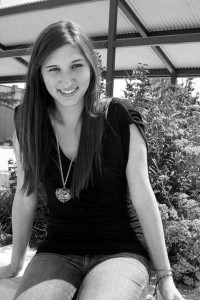By KIARA COVARRUBIAS
CASA GRANDE HIGH SCHOOL
My dad is serious, strict and intelligent. He has a great capacity to love but doesn’t show it. At age 9, he came to the U.S. along with his nine siblings: four other boys and five girls. They were raised in an environment that fostered work and discouraged public displays of affection. But my dad’s relationship with the youngest of the boys was exempt from that.
They were more than brothers: They were friends. Although they chose different lifestyles, they always remained close. My dad continued his education, married my mom and had his first child. My uncle worked in the fields, partied and enjoyed every moment in his life.
Until his life ended.
On Aug. 8, 1992, my dad turned 28 and received a phone call from the Los Angeles Police Department requesting my dad’s presence to identify the body they had reason to believe was David Covarrubias, my dad’s brother, my dad’s best friend.
My mom found my dad on the kitchen floor crying, unable to explain why. My mom wanted to help him but couldn’t as she was pregnant. He finally got up, but instead of explaining anything he took out a bottle of tequila and took three straight shots.
My uncle, his girlfriend and his cousin were on their way to a party when they suffered an accident. My uncle was in the driver’s seat and under the influence: He died instantly.
When my Dad finally recovered his composure, he explained what had happened to my mom. He carried the responsibility of breaking the news to my grandmother, and he arranged the funeral details.
The whole experience was pure pain for my dad; my mom had no consolation to offer. My Uncle David was gone before I had met him.
Almost three months later, I was born.
“You brought life to your dad when all he could think about was death,” said my Mom. So began a beautiful relationship with my dad. In many ways my dad and I are similar: Same brown eyes, same skin tone, same brown hair, the same stubbornness.
I can sit down and start a conversation with him about the latest Mexican soccer game, and we will continue there for two hours, debating the current economic status of the nation. We have different opinions about the most important subjects, but that only makes our conversations more interesting.
Not only do we share the tendency to argue a topic to the pulp, we also express our emotions in the same way, or don’t express our emotions in the same way. My mom is very emotional, and she is always prompting me to share my feelings with her. But I don’t feel relief in putting words to how I feel.
If I cry, I don’t want to be heard; if I am heard, I don’t want to be seen; if I am mad, I don’t want anyone to know. I can express joy without hesitation, but I contain my negative emotions because I don’t believe anyone needs to share the burden of my pain. I have been warned that this is not healthy, that your body can only take so much emotional stress. But I don’t have the capacity or desire to express pain.
Similarly, my dad has contained his pain for 17 years. Every year he celebrates another year of life, and every year he is reminded that his brother is gone. Although he never speaks of pain, I know my dad feels it.
Sitting in our driveway is my uncle’s old truck. It doesn’t work. There is mold growing on it and spider webs as well. My dad has kept all of his brother’s clothes, and once in a while will wear an old T-shirt. My younger brother was born five years after the death of my uncle, and his name was indisputable — David Covarrubias. My dad doesn’t speak of his pain, but I know that he still carries it with him.
My dad has given me so much and my desire is to alleviate his pain by giving him reasons to be proud, reasons to smile and reasons to live

